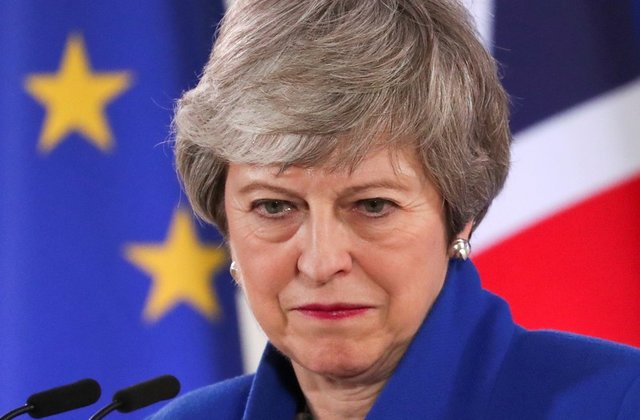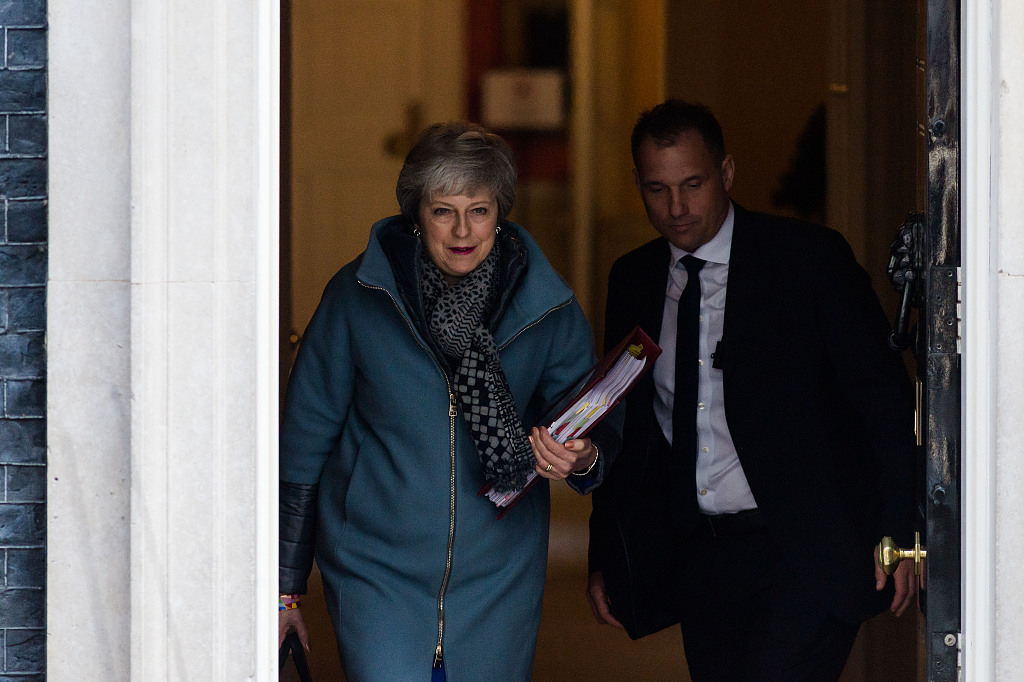
Opinion
16:11, 07-May-2019
The prospects for a May-Corbyn Brexit deal
Chris Deacon

Editor's Note: Chris Deacon is a postgraduate researcher in politics and international relations at the University of London. He previously worked as an international commercial lawyer. The article reflects the author's opinion, and not necessarily the views of CGTN.
Tuesday will see a resumption in talks between the UK's governing Conservative Party and main opposition Labour Party to attempt to formulate a compromise agreement on Brexit.
Over the long holiday weekend, Prime Minister Theresa May wrote in the Mail's Sunday edition to argue that Labour leader Jeremy Corbyn should commit to a deal, while other reports claim that a compromise regarding the UK's involvement in a "customs agreement" with the European Union could be in sight.
At the same time, however, Labour's Shadow Chancellor, John McDonnell has cast doubt on the possibility of a breakthrough, claiming that the prime minister "cannot be trusted." He also voiced concerns that May's time in office may shortly be coming to an end, negotiating with her "is like negotiating with a company going into administration."
But even if a deal is reached between the Conservative and Labour leadership, that would be far from the end of the story.
The first hurdle would be obtaining agreement from the EU. It is still not yet entirely clear what is the nature of the customs agreement compromise that may be reached, but it seems likely that the EU would be open to the UK remaining in some form of the customs union. The problem comes with the terms of such an arrangement.

British Prime Minister Theresa May during a press conference in Brussels, Belgium, April 11, 2019. /Reuters Photo
British Prime Minister Theresa May during a press conference in Brussels, Belgium, April 11, 2019. /Reuters Photo
Several prominent Labour figures have repeatedly claimed that if the UK remains a part of any customs union with the EU, it would be vital that the UK should have a say in EU's trade policy.
The EU Customs Union – of which the UK is currently a member through its membership of the EU – basically acts as a single bloc for the purposes of trade agreements and tariff imposition. That is to say, the EU negotiates trade deals with other countries, for instance, the recent agreement with Japan, and imposes uniform tariffs on goods entering the EU as a bloc.
While associate membership of the Customs Union and other customs arrangements are possible, the EU has always been clear that only full members of the EU will be allowed a say in trade policy. At the same time, any form of membership means that the state concerned is not allowed to make its own trade deals with other countries.
Thus, if the UK took such a route, the EU would likely insist that it becomes a "rule taker" rather than a "rule maker." If the Conservative-Labour compromise refuses to agree to this, it seems unlikely that the EU will accept the deal.
Even if the compromise were to be accepted by the EU, we would then have the next hurdle – one that Theresa May herself knows only too well: A vote in the UK House of Commons.

British Prime Minister Theresa May leaves her official residence in London ahead of traveling to Brussels for an emergency EU summit on Brexit, April 10, 2019. /VCG Photo
British Prime Minister Theresa May leaves her official residence in London ahead of traveling to Brussels for an emergency EU summit on Brexit, April 10, 2019. /VCG Photo
While May's original Brexit deal eventually came relatively close to passing, a compromise agreement involving any customs arrangement would likely lose much of its existing support. Brexit supporters in May's Conservative Party do not like the idea of negotiating with Corbyn at all, let alone supporting an arrangement they consider not to be a "real" Brexit.
Given the Labour leadership's agreement, however, many Labour Members of Parliament (MPs) would likely come to support the deal in any vote. The question is, therefore, would these Labour votes be enough to make up for the lost Conservative support, and then some?
This currently seems unlikely. Over 100 Labour MPs are thought to support a second referendum on Brexit. Most of these would refuse to back a compromise agreement if a second referendum does not form a part of it.
Most of the other, smaller parties in the House of Commons, such as the Scottish National Party, the Liberal Democrats, and Change UK, all support a second referendum too. So they would also not vote for such a compromise.
That is to say, there are a great number of barriers ahead for this putative grand Brexit compromise between the Conservatives and Labour, before it has even been agreed.
Even if an inter-party deal is reached, it will be incredibly difficult for it to be approved by all stakeholders. Understanding this reality may well be what dooms the talks to failure in any event. A deal would likely split both parties and, if there is no chance for it to be approved in practice, what would be the point of risking such internal party damage?
A cynic might say that both sides are actually already fully aware of this and these talks are simply a sideshow to make it seem like they are trying to implement Brexit ahead of the European elections. It remains to be seen if the cynics are right.
(If you want to contribute and have specific expertise, please contact us at opinions@cgtn.com.)

SITEMAP
Copyright © 2018 CGTN. Beijing ICP prepared NO.16065310-3
Copyright © 2018 CGTN. Beijing ICP prepared NO.16065310-3